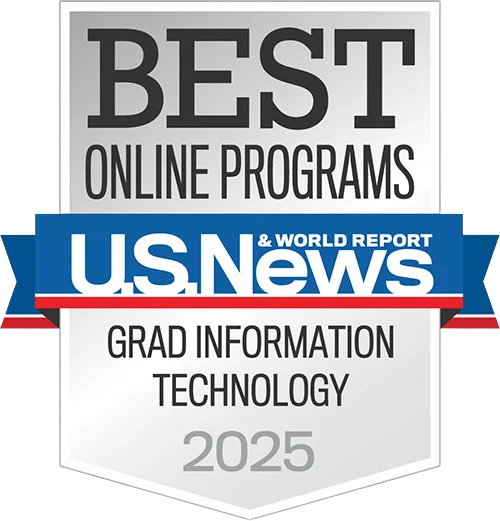Mastering Neural Networks and Model Regularization
Start anytime. Learn at your own pace.
Use deep learning to uncover answers that used to be out of reach.

Artificial Intelligence
Online Self-Paced
20 hours
2 CEUs
$500
Take as a standalone course or as part of the
Certificate in Theoretical Foundations of Machine Learning
Instructor: Dr. Erhan Guven
Curriculum designed and delivered by Hopkins APL’s Dr. Erhan Guven
LIVE monthly seminars and office hours
Engaging learning including video walkthroughs and hands-on activities
Satisfaction guaranteed. Explore the course with no risk.
Traditional machine learning—built on structured data, optimized with ensembles, and tuned with regularization—works well when the data is clean and the features are clearly defined… but in many real-world scenarios, that’s just not possible.
That’s where deep learning comes in.
For the final course in the Certificate in Theoretical Foundations of Machine Learning, Dr. Erhan Guven guides you through today’s most powerful AI systems that teach how machines to see, hear, and understand the world. Learn how to build the models that find their own way.
You’ll start by building neural networks from scratch to understand how they learn, step by step, through backpropagation. Then, using PyTorch, you’ll construct deeper architectures that learn directly from raw data: convolutional networks that can classify images and spectral models that can detect patterns in audio.
You’ll also confront the real challenges that come with depth: overfitting, vanishing gradients, and high computational cost—and learn how to address them with dropout, batch normalization, and GPU-based training.
These complex topics are broken down into hands-on projects, with Jupyter notebooks, video lessons, readings and quizzes—and Dr. Guven’s office hours are your chance get answers to any questions you have.
Deep learning changes the way models learn and what they can handle. Instead of relying on manual preprocessing or feature engineering, you’ll train systems that extract structure on their own—even from noisy, complex, or high-dimensional data. And by the end of the course, you’ll be able to recognize when deep learning is the right tool—and how to use it effectively.
Prerequisites
Experience with supervised machine learning, including model training, evaluation, and feature selection. Comfort with Python, vectorized operations, and basic linear algebra is recommended. No prior deep learning experience required—but you should be confident coding and experimenting in a notebook environment.
No Risk: Satisfaction Guaranteed
Feel confident in your learning journey! If the course content is too advanced, not advanced enough, or simply doesn’t meet your expectations, we’ve got you covered with our money-back guarantee. Just contact our team within 7 days from purchase to receive a full refund—no questions asked.
Meet Your Instructor
Dr. Erhan Guven
Johns Hopkins University, Johns Hopkins Applied Physics Laboratory

Dr. Guven is an AI scientist at Johns Hopkins University Applied Physics Laboratory and assistant program manager in Johns Hopkins Engineering’s #1 ranked online master’s programs in AI and data science. His research spans a broad spectrum of machine learning applications, including large language models, financial systems cybersecurity, NLP, and bioinformatics. In his spare time, he enjoys gardening, beekeeping, building computers and playing Defense of the Ancients.
Dr. Guven is Here to Help!
Questions about course content? Looking compare model results or get feedback? Stop by monthly Zoom office hours to talk with Erhan and fellow students.
Projects You’ll Build (With Expert Guidance)
With ready-to-use Jupyter notebooks and working code examples, Dr. Guven will walk you through creating…
Neural Network from Scratch
Construct a multilayer perceptron using only NumPy and PyTorch tensors—manually coding forward propagation, backpropagation, and gradient descent.
Then train your model on the MNIST dataset to classify handwritten digits, reinforcing a deep, code-level understanding of how neural networks learn.
Image Classification with Convolutional Neural Network
Use PyTorch to build a CNN that classifies MNIST digits with high accuracy by detecting strokes, edges, and loops. You’ll learn how convolutional layers extract spatial features and why CNNs outperform fully connected networks on image tasks.
Audio Classification with Spectrograms
Transform raw audio into spectrogram images and train a CNN to classify environmental sounds. You’ll experiment with dropout, batch norm, and architecture tuning to build models that handle messy, real-world data.
Scene Recognition with Neural Networks
Train both a fully connected network and a CNN to classify natural scene images—and see why spatial features matter. This side-by-side comparison highlights how architecture impacts accuracy, especially on complex image data.
Stack Overflow Code Classifier
Use TF-IDF features and a PyTorch neural network to predict the programming language behind Stack Overflow posts. You’ll build a multi-class text classifier and compare it to an SVM to learn when deep learning pays off—and when it might not.
Save $300 and Earn the Full Certificate
Mastering Neural Networks and Model Regularization is one of 3 courses in the full

The image is for illustrative purposes only. Actual certificate design subject to change,
Complete this course as well as:
and the capstone project to earn your Johns Hopkins Certificate of Achievement.
Save $300 when you purchase the full Certificate in Theoretical Foundations of Machine Learning bundle instead of paying for each course individually.
Powered by Engineering for Professionals
The #1 Ranked Online Grad Program for Computer Information Technology by U.S. News & World Report

Johns Hopkins Engineering’s Lifelong Learning delivers executive education courses from the same faculty and support team behind Johns Hopkins Engineering for Professionals, the nation’s #1 online, part-time graduate program in computer information technology. This ranking includes our master’s programs in computer science, artificial intelligence, cybersecurity, information systems engineering, and data science.
Course Delivery and Support
The courses are delivered entirely online through the industry-leading Canvas Learning Management System. This system is supported by the same instructional design team behind Johns Hopkins’ renowned Engineering for Professionals program, which serves thousands of online graduate students each year. Upon registration, you will receive an email with instructions to create your Hopkins Canvas account and access the videos, readings, files and quizzes.
Mastering Neural Networks and Model Regularization
Artificial Intelligence
Online Self-Paced
20 hours
2 CEUs
$500
Take as a standalone course or as part of the
Certificate in Theoretical Foundations of Machine Learning
No Risk: 7-Day Money-Back Guarantee